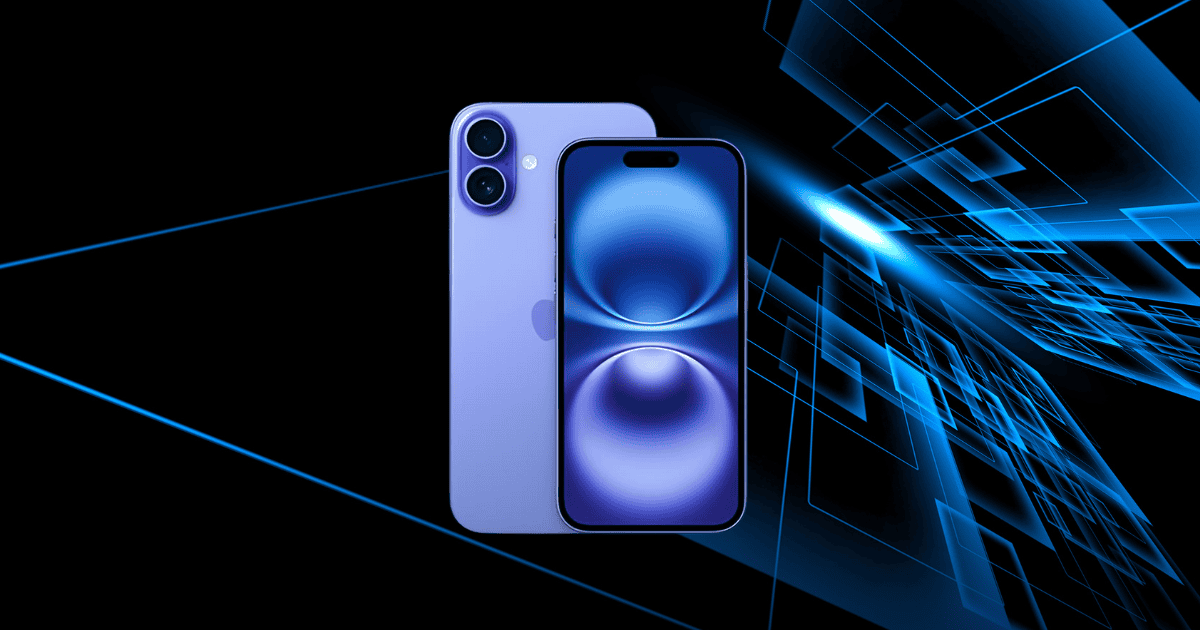Apple’s recent strategic pivot towards hardware innovation, as highlighted by the iPhone 16’s impressive advancements, raises intriguing questions about their long-term vision. By prioritizing features such as the A18 Pro chip and enhanced camera capabilities, Apple appears to be responding directly to consumer preferences, which may signal a shift in industry focus. This departure from a heavier investment in artificial intelligence could have significant implications for competitive dynamics within the tech sector. What does this mean for Apple’s future initiatives and the broader landscape of technology innovation?
Apple’s Strategic Shift in Focus
Apple’s strategic shift in focus during the launch of the iPhone 16 marks a significant departure from the industry’s growing emphasis on artificial intelligence. Instead of pursuing aggressive AI capabilities, Apple’s new strategy highlights hardware advancements, particularly the A18 Pro chip and a 48MP Fusion camera.
This decision aligns with consumer preferences that, according to a CNET survey, reveal only 18% of users prioritize AI features for smartphone upgrades.
By emphasizing traditional improvements such as battery life and camera quality, Apple seeks to cater to its loyal customer base, valuing performance and familiarity over the current AI hype. This strategic shift contrasts sharply with competitors like Google and Samsung, who showcased extensive AI capabilities during their presentations.
Apple’s measured approach may reflect an emerging trend in the tech industry, signaling a potential pivot back to robust hardware enhancements.
While this move may risk leaving Apple behind in the race for innovative AI features, it could also position the company as a leader in meeting the fundamental needs of consumers who prioritize tangible improvements in their devices.
As the landscape evolves, Apple’s focus on hardware might redefine the competitive dynamics within the smartphone market.
Key Features of iPhone 16
The iPhone 16 lineup introduces a compelling array of features, designed to enhance user experience and performance across its four models: iPhone 16, 16 Plus, 16 Pro, and 16 Pro Max. All models are powered by the new A18 chip, which offers up to 60% faster processing compared to its predecessor, the A16 Bionic. This considerable boost in performance is complemented by innovative camera control systems, especially in the iPhone 16 Pro models, which feature a 48MP Fusion camera. This camera notably improves low-light performance and macro photography capabilities, catering to photography enthusiasts.
| Feature | iPhone 16 Pro Models |
|---|---|
| Processor | A18 chip |
| Camera | 48MP Fusion |
| Low-light Performance | Enhanced |
| Display | 6.3-inch Super Retina XDR |
| Video Recording | 4K 120 fps Dolby Vision |
With a Grade 5 titanium chassis and advanced display technology, the iPhone 16 Pro models showcase Apple’s commitment to hardware excellence. While they may not feature the most powerful AI features, the focus on hardware enhancements guarantees a robust and reliable user experience.
Hardware Upgrades Over AI
In the competitive smartphone landscape, hardware upgrades have taken precedence over artificial intelligence features, as demonstrated by the recent iPhone 16 launch.
Apple’s strategic focus on the A18 chip and substantial camera improvements highlights a commitment to enhancing user experience through traditional performance upgrades. During the launch event, Apple prioritized showcasing the 48MP camera and the processing capabilities of its new chip, while AI features received minimal attention.
This approach aligns with consumer preferences, as indicated by a CNET survey revealing that only 18% of respondents prioritize AI features for phone upgrades. Most users are motivated by longer battery life (61%) and improved camera quality (38%), reinforcing Apple’s decision to emphasize hardware enhancements.
The iPhone 16 lineup includes four models, with significant upgrades in the Pro versions, underlining Apple’s dedication to tangible improvements rather than an aggressive push into AI.
While competitors like Google and Samsung have increasingly showcased AI capabilities, Apple appears content to cater to its loyal customer base by delivering reliable hardware upgrades that enhance overall usability, even if it means settling for a more modest integration of AI features powered by the A18 chip.
Competitive Landscape Analysis
Amidst a rapidly evolving smartphone market, Apple’s latest iPhone 16 launch underscores a deliberate distinction in its competitive strategy, focusing on hardware enhancements rather than an overt push into artificial intelligence. This approach contrasts sharply with competitors like Google and Samsung, who are aggressively marketing AI features to attract consumers.
The following table illustrates the competitive landscape regarding hardware improvements and AI integration:
| Company | Focus Area | Key Features Highlighted |
|---|---|---|
| Apple | Hardware | A18 Pro chip, camera enhancements |
| AI | Gemini platform, AI-driven photography | |
| Samsung | AI | AI features in camera and software |
| Huawei | AI | Advanced AI capabilities in devices |
Apple’s decision aligns with consumer preferences; a CNET survey revealed that only 18% prioritize AI features in phone upgrades, while 61% prefer hardware improvements. By enhancing the user experience through robust hardware while subtly integrating AI capabilities, Apple aims to solidify its market position. This strategic pivot may prompt other tech companies to reevaluate their focus, potentially leading to a resurgence in hardware-driven innovations amidst the AI-centric narrative.
Impact on User Experience
Focusing on hardware improvements, Apple has made a strategic choice that greatly enhances user experience with the iPhone 16. The introduction of the A18 Pro chip, boasting up to a 60% increase in processing speed, markedly elevates app performance and multitasking capabilities, resulting in a smoother and more efficient user experience.
This prioritization aligns with consumer preferences, as 61% of users value longer battery life over AI features, underscoring the desire for tangible enhancements.
The iPhone 16 Pro models further demonstrate Apple’s commitment to hardware advancements with the 48MP Fusion camera. This innovation not only improves low-light performance but also caters to users’ aspirations for superior photography, making it a standout feature in the competitive landscape.
Although Apple Intelligence is integrated to streamline user interactions through features like message summarization and context-aware Siri responses, the emphasis remains on enhancing usability without overwhelming users with complex AI-centric functionalities.
Future of Apple’s AI Initiatives
Apple’s commitment to enhancing user experience through hardware improvements sets the stage for future developments in its AI initiatives. While the company has chosen to focus on refining its latest iPhone 16 with the A18 Pro chip, significant advancements in its AI strategy are on the horizon.
Scheduled for rollout in October 2024, Apple Intelligence aims to integrate sophisticated AI tools into existing applications like Mail, Messages, and Siri, enhancing interaction and user engagement. This initiative reflects Apple’s dedication to a focus on privacy by utilizing on-device processing, which minimizes sensitive data transfers and bolsters security.
As competitors race ahead in AI capabilities, Apple’s approach positions it uniquely, prioritizing user privacy while progressively advancing its AI offerings. Future collaborations, particularly with OpenAI, are expected to elevate Siri’s functionalities, allowing for more nuanced and intelligent interactions.
Additionally, the anticipated expansion of Apple Intelligence into multiple languages by 2025 demonstrates a commitment to accessibility and user-friendly design. As Apple navigates the evolving landscape of artificial intelligence, its strategy appears poised to balance innovation with its core values of privacy and performance.
Insights From Industry Experts
Many industry experts are observing a notable shift in Apple’s strategy, particularly regarding its emphasis on hardware advancements in the latest iPhone 16 release. This move focuses on significant hardware improvements like the A18 chip, enhanced camera capabilities, and extended battery life, which aligns with recent consumer preferences.
According to a CNET survey, only 18% of consumers prioritize AI features for phone upgrades, indicating that Apple’s hardware-centric approach may resonate well with its loyal customer base.
While competitors such as Google and Samsung aggressively promote AI features, Apple’s strategy appears more measured, integrating AI capabilities as complementary elements rather than the primary focus. Industry experts suggest this restrained messaging could signal a broader trend toward hardware-first strategies in tech, prompting other companies to reevaluate their priorities.
The iPhone 16 event showcased these hardware enhancements prominently, contrasting with the AI hype prevalent in competitor presentations. By emphasizing traditional strengths while cautiously incorporating AI features, Apple may not only solidify its market position but also influence the industry to adopt a more balanced approach to product development.
This strategic pivot may redefine how tech companies approach consumer preferences in an increasingly competitive landscape.
Final Thoughts
In summary, Apple’s strategic pivot towards hardware advancements, akin to a ship steering towards clearer waters, underscores a commitment to enhancing user experience over artificial intelligence. The iPhone 16, with its impressive A18 Pro chip and 48MP Fusion camera, exemplifies this shift, potentially reshaping industry dynamics. As competitors reevaluate their strategies, the long-term implications for AI initiatives within Apple remain to be seen, promising a fascinating evolution in the tech landscape.






